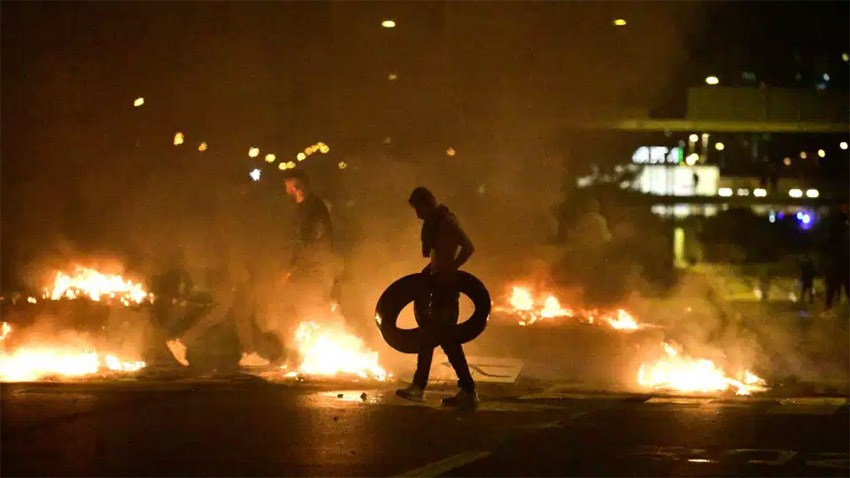A Danish far-right politician wreaked havoc in Sweden after touring around in the central and southern parts of the country during the Easter holiday trying to burn the Koran.
Before the start of the holiday, Rasmus Paludan, an anti-Islam politician, travelled with his followers first to Linköping, Rinkeby, an immigration suburb of Stockholm, and Örebro, announcing his intent to carry out a Koran-burning protest. In Rinkeby, Swedish press reported that he repeatedly threw the holy book in the ground before he set fire to it.
The events there, especially in Örebro, led to counter-protests that left tens of police officers injured and several police vehicles set on fire. The event was labelled as a violent riot by the police authorities that lost control of the situation. Rescue services were afraid of entering the area.
From central Sweden, he continued on Saturday to southern Sweden where he again sparked clashes in Malmö between demonstrators and counter-protestors, with a city bus set on fire and other fires in the area.
The Swedish justice minister, Morgan Johansson of the ruling social-democratic party, commented that he had full confidence in the police but prime-minister Magdalena Andersson wrote that, “Sweden can do better”.
In an interview in Swedish daily Dagens Nyheter, a researcher at Linköping university, Stefan Holgersson, criticised the police for its way of structuring its work and of handling violent riots. “It’s crazy that politicians are expressing confidence in the police force.”
Rasmus Paludan (40) is the founder of the far-right party Stram Kurs (‘Hard Line’) in Denmark. In 2019, the party narrowly missed the electoral threshold, and the court convicted Paludan of racism.
He has a record of travelling to EU member states carrying out Koran-burnings and inciting against Muslim migrants but in most other countries he has been banned. In October 2020, the Brussels municipality of Molenbeek did not allow him to come after he had announced that his intention was to burn the Koran. He has also been arrested by the French authorities.
Sweden, however, has acted differently. In August 2020, a public burning of the Koran in an immigration neighbourhood in Malmö sparked violent protests in the city. The European Commission condemned the incident. A request by the Danish politician to demonstrate outside a mosque in the city was denied and a two-year travel ban to enter Sweden was issued against him.
Back then, a local police spokesperson told The Brussels Times that it has not been legally examined in Sweden whether burning a book, which is considered as holy by a community, is a crime and amounts to incitement against a minority group according to Swedish law. A preliminary investigation by the prosecution office could therefore set a precedent in Sweden.
However, after a few months the prosecutor decided to close the investigation because of lack of evidence that a crime had been committed by people that could be identified. Burning the Koran is not illegal, according to the prosecutor. Paludan’s travel ban was apparently cancelled and he was allowed to travel to Swedish cities to disturb the public order and provoke riots.
The Swedish police authorities did not reply at the time of press to a request for comment on the latest round of violent riots.
According to the European Commission, a possible legal instrument to ban public Koran burnings is the Framework Decision from 2008 on combating certain forms and expressions of racism and xenophobia by means of criminal law.
EU member states are supposed to apply national legislation based on the Framework Decision. However, some member states, including Sweden, have not transposed the Framework Decision properly.
Article 1 of the Framework Decision states that each member state shall take the necessary measures to punish intentional conduct such as “publicly inciting to violence or hatred directed against a group of persons or a member of such a group defined by reference to race, colour, religion, descent or national or ethnic origin.”
M. Apelblat
The Brussels Times

